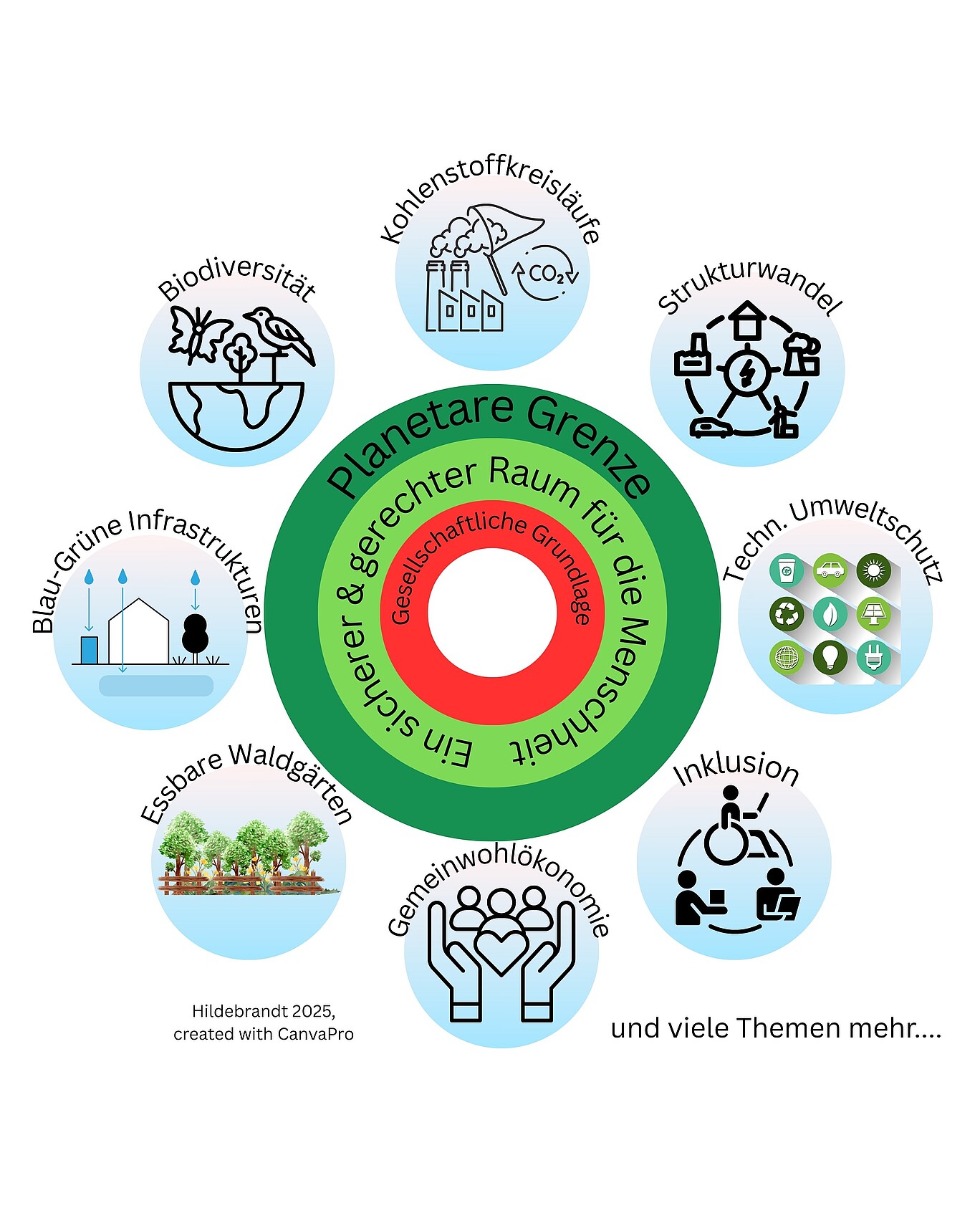At the Ideenwerkstatt Zittau and Görlitz, students from various disciplines work together to develop innovative, sustainable products, prototypes or solutions - from the initial idea to the final implementation. The focus is on a complete design and development process that combines creative thinking, technical expertise and social responsibility.
The HSZG's learning and meeting spaces - such as the Makerspace Zittau or the Zukunftsetage Görlitz - are actively used: Students explore these modern workshop environments with 3D printing, laser cutting, electronics, wood and metal processing and other technologies. Experimental work, digital support and continuous consultations create a practical, multi-sensory learning space.
The module follows the approach of research-based and experience-oriented learning: students take responsibility for their learning process, develop self-efficacy and reflect on the ecological, social, technological and economic impact of their projects. A makerspace wiki acts as a collective knowledge archive and promotes open exchange and learning cultures across semesters.
The aim of the module:
to promote creativity, develop sustainable solutions, strengthen technical skills - and learn to take responsibility, manage projects and turn ideas into concrete results as part of a team.
In short: the ideas workshop makes future issues tangible and opens up space for courageous, interdisciplinary and sustainable design.

Module description: Lecture series on sustainability (total)
The lecture series and seminar module on topics of ecological, economic and social sustainability (4 SWS, 5 ECTS) offers a systemic approach to the major challenges of sustainable development. It combines an interdisciplinary lecture part (2 SWS) with an in-depth seminar part (2 SWS), in which students set their own priorities and work on further questions in group work and plenary discussions. The topics include social, ecological, technical and economic aspects of sustainable transformation. The module is offered alternately in Görlitz (summer semester) and Zittau (winter semester). Examination performance is a graded document that scientifically deepens a self-chosen sustainability topic from the lecture and seminar part.
Summer semester (Görlitz): Topic impulses and deepening
In the summer semester, the focus is on ecological-technical and socio-spatial aspects of sustainable development. The lecture part offers impulses on the following topics: municipal energy supply (electricity, heat, transport), CO₂-negative building materials and bioeconomy, edible forest gardens as resilient systems, structural change in Lausitz, municipal sustainability strategies, circular economy and inclusion, technical and natural carbon cycles and European energy integration. This is supplemented by an introduction to the fundamentals of sustainable development. The seminar part (2 SWS) delves deeper into selected topics in interactive formats: students analyze local and international practical examples, develop their own project ideas, simulate municipal decision-making processes or investigate conflicting goals between climate, biodiversity and social objectives. The aim is to think critically and reflectively on the topics of the lecture and to discuss them in application-oriented contexts. The module examination builds on this in-depth knowledge and promotes independent scientific work.
Winter semester (Zittau): Topic impulses and in-depth study
In the winter semester, the lecture series on sustainability at the Zittau campus is dedicated to current issues at the interface of environmental change, social transformation and crisis resilience. After an introductory overview of sustainability concepts and their historical development, central topics such as biodiversity, the basics of technical environmental protection, the effects of the bioeconomy on global land use dynamics and questions of inclusion and orientation towards the common good are dealt with. Particular attention will be paid to the challenges of structural change, especially in Lausitz, and the geopolitical upheavals of the energy crisis. The program is supplemented by contributions on blue-green infrastructure in urban areas, which combines ecological and social services, as well as a contribution on disaster resilience entitled "Nobody can be ready for a cyclone". The accompanying seminar part (2 SWS) builds specifically on the content of the lectures and serves to deepen analytical knowledge. Students critically examine selected topics, carry out research on specific case studies and develop their own ideas for sustainable solutions. The focus is on discussions on transformation strategies, conflicting goals between climate protection and social justice as well as municipal or regional design approaches. The seminar part thus not only promotes interdisciplinary thinking, but also judgment and methodological skills. The examination takes the form of a written document that takes up a topic chosen by the student from the lecture and seminar and elaborates on it in a scientifically sound manner.